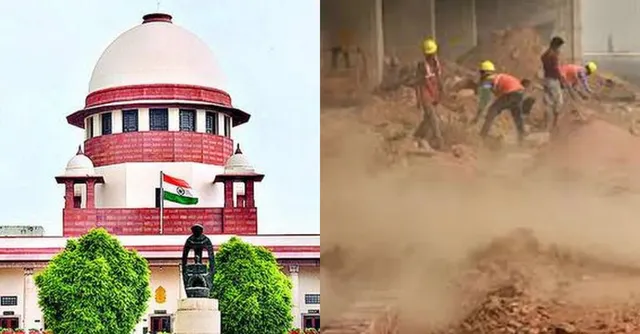- By Yashashvi Tak
- Mon, 17 Nov 2025 04:25 PM (IST)
- Source:JND
The Supreme Court on Monday declined to impose a blanket construction ban in Delhi-NCR despite the ‘very poor’ air quality, stating that environmental protection must be balanced with development needs. A Bench led by Chief Justice of India BR Gavai said it was not inclined to issue “bold directions” on pollution control, noting that judges are not environmental experts and must act within judicial limits when handling complex scientific issues.
ALSO READ: Delhi Air Quality Update: Pollution Hot Spot Rises To 62 From 13 After Minister's Ground Inspection
The Court asked the Centre to submit a comprehensive plan by November 19 to address the air pollution crisis, stressing the need for long-term, science-based solutions instead of short-term or seasonal measures. It added that managing Delhi’s pollution cannot be the Court’s ongoing responsibility and highlighted that lakhs of families depend on construction work, making a sweeping ban socio-economically harmful.
Reaffirming the structured implementation of the Graded Response Action Plan (GRAP), the Bench said restrictions must be applied according to pollution levels.
Appearing for the Centre, ASG Aishwarya Bhati argued that pollution standards used in developed nations cannot be directly applied to developing countries like India, which are still undergoing industrialisation. She informed the Court that the Union Environment Minister recently met Delhi-NCR officials and further meetings will outline immediate steps.
The Court also sought responses from the Centre, CPCB, and CAQM after concerns were raised about outdated monitoring systems unable to record AQI beyond 999 and allegations of manipulated readings. It directed the government to clarify the type and efficiency of devices used.
ALSO READ: Delhi Pollution: Choking On Toxic Smog? 8 Places Near NCR To Escape For Fresh Air
The Bench declined suggestions to adopt California-level standards or year-round GRAP-1 restrictions and took on record reports from Punjab and Haryana on stubble-burning controls.

